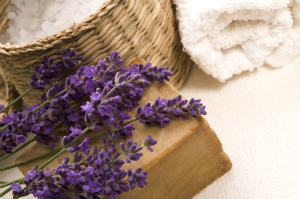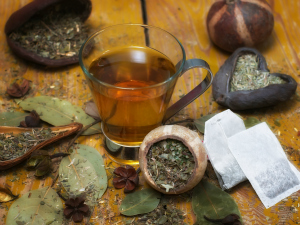Herbal Supplements For Depression
If your depression is taking your life away, herbal supplements for depression is an absolute necessity to incorporate in your life.
Herbal supplements may improve your mood and general well being while stabilizing neurotransmitter balance.
Note from Editor: Consult
your doctor when taking herbal supplements for depression. Herbal
supplements may cause side effects, and even interact with other herbs,
supplements, or medications. Some are
toxic at higher doses, when taken with medication, or worsen medical
conditions.
We need to understand what our body and brain needs to perform, and how the lack of certain nutrients can really affect us and even cause depression.
I personally prefer to take herbal supplements for depression through meals as much as possible. It is virtually impossible to overdose on vitamins and minerals through food.
But, eating enough supplements through foods may not be realistic, so you may need the extra boost of herbal supplements for depression in tablet form.
For that reason I’ve included a list of herbal supplements for depression along with those which may have associated side effects.
Omega-3 Fatty Acids
Omega 3 fatty acids are crucial for the brain’s development and proper function. Omega 3s are the best herbal supplements for depression, and has also been shown to reduce heart disease.
Omega 3 comes in three forms: ALA (alpha-linelenic acid), DHA (docosahexaenoic acid) and EPA (eicosapentaenoic acid). ALA is found in certain nuts, while DHA and EPA are found in certain fatty fish and algae.
Omega-3 fatty acids can be found in cold water fish, most importantly salmon (not farm raised, which have little to no Omega-3); some other good sources are tuna, and halibut. You can also find it in algae and krill, plants, and nut oils.
Dosage
Food Sources. For DHA and EPA sources, eat fatty fish two times a week:
Salmon, anchovies, bluefish, carp, catfish, halibut, herring, lake trout, mackerel, pompano, striped sea bass, tuna (albacore), and whitefish.

Photo by stockfreeimages.com
Do not eat fish more than 2 times per week, because most fish contain traces of mercury.
For ALA, eat flaxseed, flaxseed oil,
canola (rapeseed) oil, soybeans and soybean oil, pumpkin seeds and pumpkin seed
oil, perilla seed oil, tofu, walnuts, and walnut oil.
Supplements. The World Health Organization and
governmental health agencies of several countries recommend consuming 0.3-0.5
grams of EPA plus DHA, and 0.8-1.1 grams of ALA daily.
Precautions
- When buying fish oil ensure there is no mercury or pesticide in its products.
- Fish may contain contaminants such as mercury. Avoid eating fish with higher levels of mercury (such as mackerel, shark, swordfish, or tilefish).
- Fish oil can cause gas, bloating, belching, and diarrhea. Taking fish oil supplements with meals or freezing them can often decrease these side effects (2). Time release capsules may also reduce these side effects.
- Make sure you check whether the supplements you buy need refrigeration.
- Do not take more than 3 grams daily of omega-3 fatty acids from capsules without the supervision of a health care provider, due to blood thinning effects and increased risk of bleeding.
- Farmed fish contain negligible amounts of Omega 3. This is because fish must get their Omega 3 from their diet, and farmed fish do not have Omega 3 rich diets.
- Use Omega-3 cautiously if you suffer from bleeding disorder or bruise easily. High doses of omega-3 fatty acids may increase the risk of bleeding.
5-HTP
5-HTP is a herbal supplement for depression that raises the level of Serotonin (your happy hormones) in the brain. Normally 5-HTP comes from foods containing tryptophan. The body transformes the Tryptophan into 5-HTP, which in turn converts into Serotonin.
Increasing the intake of Tryptophan does not increase the level of 5-HTP, but there are 5-HTP supplements you can take that will directly help increase Serotonin.
Some low level studies suggest that 5-HTP is effective with depression and even with losing weight.
Dosage
Food Sources. You can’t get these herbal supplements for depression from food, but tryptophan, which the body uses to make 5-HTP, can be found in turkey, chicken, milk, potatoes, pumpkin, sunflower seeds, turnip and collard greens, and seaweed.(3)
Supplements. Take about 50 mg of 5-HTP taken 1 - 3 times per day. NOTE: higher doses can be toxic.
Precautions
- Do not take 5-HTP if you are taking anti-depressants. Consult your doctor before taking 5-HTP.
- High doses can be toxic.
- Side effects of these herbal supplements for depression are generally mild and may include nausea, heartburn, gas, feelings of fullness, and rumbling sensations in some people.
- People with high blood pressure or diabetes should talk to their doctor before taking 5-HTP.
- If you take antidepressants, you should not take 5-HTP (see "Possible Interactions" sections).
- People with liver disease, pregnant women, and women who are breastfeeding should not take 5-HTP.(3)
American Ginseng
American ginseng (Panax quinquefolius) is sometimes called “adaptogen,” because they are considered herbal supplements for depression that helps with stress. American ginseng were used by American natives for stress and headaches.
There are similarities with the Asian ginseng (Panax ginseng), but the American ginseng seems to have a more relaxing effect.
There is also a Siberian ginseng (Eleutherococcus senticosus) which have different active ingredients and are used for different purposes.
Dosage
Standardized extract: 100 - 200 mg, 1 - 3 times daily, standardized to contain 4 - 5% ginsenosides
Fresh root: 1 - 2 g, once daily for up to 3 months
Dried root: 1/2 - 2 g, chew and swallow once daily
Tincture (1:5): 1 - 2 teaspoonfuls, 1 - 3 times daily
Fluid extract (1:1): 1/4 - 1/2 teaspoonfuls, 1 - 3 times daily
Precautions
- To avoid hypoglycemia (low blood sugar), even in people without diabetes, take these herbal supplements for depression with food.
- People with hypertension (high blood pressure) should not take American ginseng products without the close supervision of their doctor.
- People with low blood pressure, as well as those with an acute illness, should use caution when taking American ginseng.
- People with bipolar disorder should not take ginseng, because it may increase the risk of mania.
- Pregnant or breastfeeding women should not take American ginseng.
- Women who have a history of breast cancer should not take ginseng.
- Stop taking American ginseng at least 7 days prior to surgery. American ginseng can lower blood glucose levels and could create problems for patients fasting before surgery.
- American ginseng may act as a blood thinner, increasing the risk of bleeding during or after the procedure.
Lavender
Lavender is a natural remedy for a range of ailments from insomnia and anxiety to depression and fatigue.
Research has shown that these herbal supplements for depression produce calming, soothing, and sedative effects when its scent is inhaled.

Photo by stockfreeimages.com
It can be effective in treating insomnia, stress, and anxiety.
Lavender has also been used in aromatherapy to treat headaches, nervous disorders, and exhaustion.
Dosage
Internal use: Speak with a knowledgeable health care provider to find the right dose for you.
Inhalation: 2 - 4 drops in 2 - 3 cups of boiling water. Inhale vapors for headache, depression, or insomnia.
Topical external application: For ease of application, add 1
- 4 drops per tablespoon of base oil (such as almond or olive oil).
Precautions
- Lavender oil is toxic if taken orally. Only use the oil externally or by inhalation. Also, avoid contact with eyes or mucous membranes, such as the lips and nostril.
- There are some people who find essential oil used in inhalation form irritating to lungs and/or eyes.
- Inhalation or skin absorbtion may cause nausea, vomiting, headache, and chills.
- Lavender applied to skin may cause irritation in some people.
- Oral use of Lavender may cause constipation, headache, and increased appetite.
- If you have asthma, talk to your doctor before using essential oil inhalations to see if they are right for you.
Peppermint
Peppermint are herbal supplements for depression known for having a calming and numbing effect, so they can be used for depression anxiety as well as headaches, skin irritations, nausea, diarrhea, menstrual cramps, and flatulence.

Photo by stockfreeimages.com
Peppermint is known for having a calming and numbing effect, so it can be used for depression anxiety as well as headaches, skin irritations, nausea, diarrhea, menstrual cramps, and flatulence.
One study suggested that peppermint applied to the forehead and temples helped reduce headache symptoms.
Dosage
For tension headaches use a tincture of 10% peppermint oil to 90% ethanol, lightly coat the forehead and allow the tincture to evaporate.
Precautions
- Never apply peppermint oil to the face of an infant or small child, as it may cause spasms that inhibit breathing.
- Large doses of peppermint oil can be toxic. Pure menthol is poisonous and should never be taken internally. It is important not to confuse oil and tincture preparations.
- Menthol or peppermint oil applied to the skin can cause a rash.
SAMe (S-Adenosylmethionine)
SAMe can be found naturally in the body. Research has shown that SAMe can be effective in Arthritis pain as well as treating depression; although further research is needed to corroborate such claims.
In
studies patients claimed that SAMe were effective herbal supplements for depression compared to anti-depressants,
but much quicker, because anti-depressants need at least 6 to 8 weeks to take
effect.
Dosage
Food Sources. SAMe cannot be found in foods so the only sources are in capsules or tablets.
Supplements. The recommendation for depression treatment is 800 to 1,600 mg of SAMe per day, in 2 divided doses (morning and afternoon).
Precautions
- SAMe may interact with medication, especially anti-depressants, so a doctor should be consulted before taking this supplement.
- SAMe may cause side effects such as dry mouth, nausea, gas, diarrhea, headache, anxiety, a feeling of elation, restlessness, insomnia, sweating, dizziness, and palpitations.
- Large doses of SAMe may cause mania (abnormally elevated mood). Start at a low dose and gradually increase it. Do not exceed recommended doses.
- Large doses of SAMe may cause mania (abnormally elevated mood). Start at a low dose and gradually increase it. Do not exceed recommended doses.
- Pregnant and breastfeeding women should not take SAMe.
- People with bipolar disorder (manic depression) should not take SAMe since it may worsen manic episodes.
- SAMe should not be combined with other antidepressants without first consulting your doctor.
- People taking SAMe may want to take a multivitamin that contains folic acid and vitamins B12 and B6.
St. John’s Wort
Studies have concluded that St. John’s Wort is just as effective herbal supplement for depression as anti-depressants in the treatment of mild to moderate depression (not for major depression or bipolar disorder). It may take 3 - 4 weeks to feel any effects from St. John's wort.
St. John’s Wort also improves recovery from Seasonal Affective Disorder (SAD) when taken in conjunction with light treatment. However, danger to sunburn is increased because St. John’s Wort makes the skin more sensitive to sunlight.
Read about SAD and light treatment here.
Dosage
St. John’s Wort can be taken in capsules, tablets, liquid extract or tea. The usual dose for mild depression and mood disorders is 300 mg (standardized to 0.3% hypericin extract), 3 times per day, with meals. St. John’s wort is available in time-release capsules.
St. John’ s Wort is also available as a liquid extract or a tea. Ask your doctor to help you find the right dose.
Precautions
- Don’ t stop taking St. John’ s Wort all at once, because
that may cause unpleasant side effects. Gradually lower the dose before
stopping.
- Side effects from St. John’s wort are generally mild and include stomach upset, hives or other skin rashes, fatigue, restlessness, headache, dry mouth, and feelings of dizziness or mental confusion.
- St. John’s wort can also make the skin overly sensitive to sunlight.
- The potential concerns about St. John’ s wort are that it may interfere with getting pregnant or make infertility worse; that it may make symptoms of ADD and ADHD worse, especially among people taking methylphenidate; that it may increase the risk of psychosis in people with schizophrenia; and that it may contribute to dementia in people with Alzheimer’ s.
- Since St. John’s wort can interact with medications used
during surgery, you should stop taking it at least 5 days or more before
surgery. Make sure your doctor and surgeon know you are taking St. John’s wort. (3)
SOURCES:
1. http://www.mayoclinic.com/health/fish-oil/NS_patient-fishoil/DSECTION=dosing
2. http://www.nlm.nih.gov/medlineplus/druginfo/natural/993.html
3. http://www.umm.edu/altmed/articles/depression-002453.htm
Return from Herbal Supplements For Depression to Depression Help HomePage






